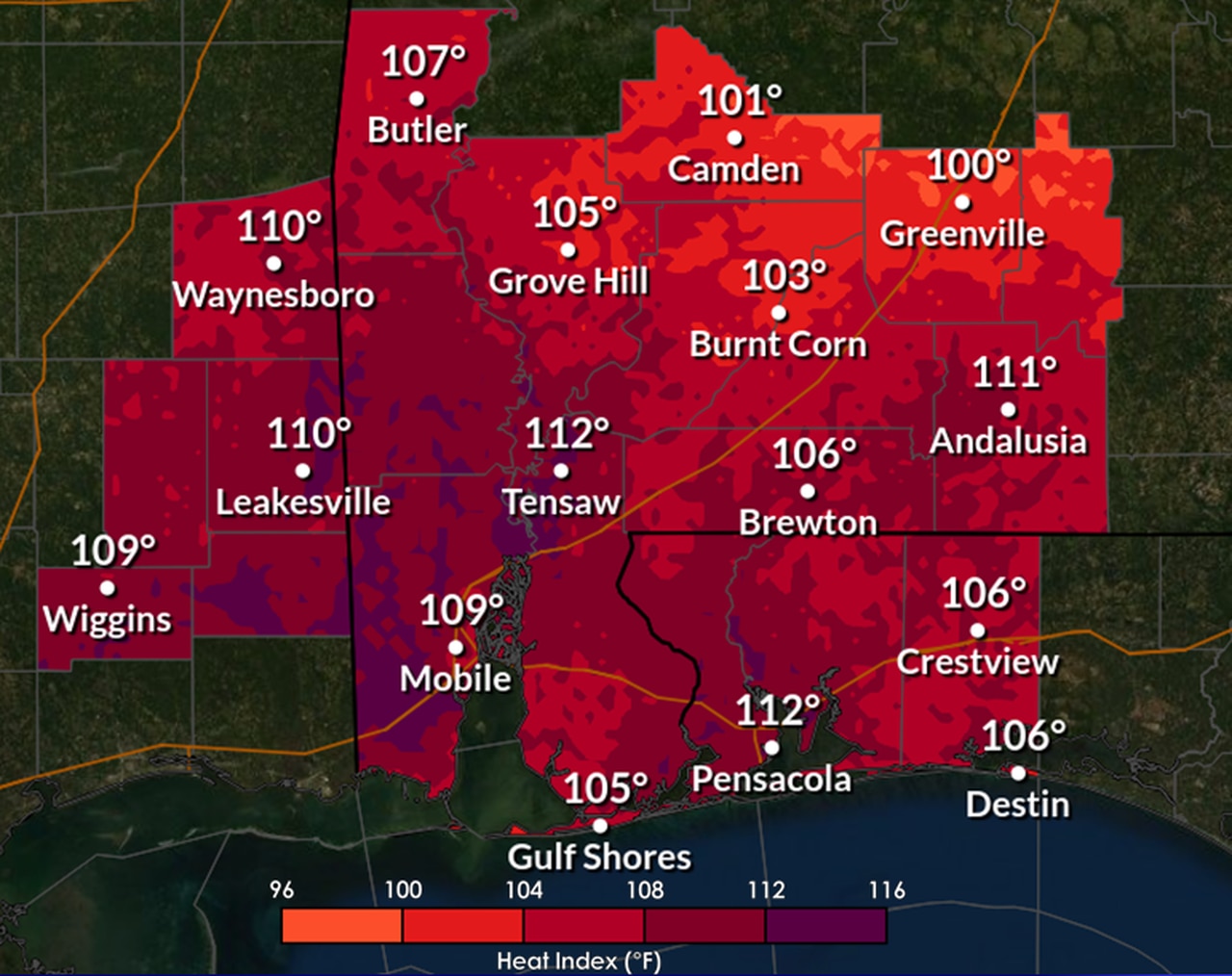Excessive heat warning issued in coastal Alabama: heat index surpasses 100
The National Weather Service issued an excessive heat warning that includes Mobile and Baldwin counties, as heat index values creep above 100 degrees.
The heat wave, making its way east from Texas, is expected to continue throughout the week.
While the actual temperature is not expected to climb higher than the upper-90s in coastal Alabama, the heat index is an important indicator of potential impacts to those who have prolonged exposure to the heat, according to the NWS. Extreme heat increases the threat of heat exhaustion, cramps and strokes.
Forecasters issue excessive heat warnings when the heat index reaches 110-115 degrees.
The warning also extends into portions of southeast Mississippi and coastal portions of the western Florida panhandle.
“Drink plenty of fluids, stay in an air-conditioned room, stay out of the sun, and check on relatives and neighbors,” the NWS said in an advisory. “Never leave people or pets unattended in vehicles.”
The heat index measures “what the temperature feels like to the human body when relative humidity is combined with the air temperature,” according to the NWS website.
Signs of heat stroke, according to the U.S. Dept. of Homeland Security, include:
- Extremely high body temperature (above 103 degrees F) taken orally
- Red, hot and dry skin with no sweat
- Rapid, strong pulse
- Dizziness, confusion or unconsciousness
If you suspect you or someone around you is experiencing a heat stroke, call 911 or get the person to a hospital as soon as possible. Cool down with whatever methods are available until medical help can take over, but the person experiencing heat stroke should not have anything to drink.
Officials also advise those in extreme heat to:
- Never leave people or pets in a closed car on a warm day.
- If air conditioning is not available in your home go to a cooling center.
- Take cool showers or baths.
- Wear loose, lightweight, light-colored clothing.
- Use your oven less to help reduce the temperature in your home.
- If you’re outside, find shade. Wear a hat wide enough to protect your face.
- Drink plenty of fluids to stay hydrated.
- Avoid high-energy activities or work outdoors, during midday heat, if possible.
- Check on family members, older adults and neighbors.
- Watch for heat cramps, heat exhaustion and heat stroke.
- Consider pet safety. If they are outside, make sure they have plenty of cool water and access to comfortable shade. Asphalt and dark pavement can be very hot to your pet’s feet.
- If using a mask, use one that is made of breathable fabric, such as cotton, instead of polyester. Don’t wear a mask if you feel yourself overheating or have trouble breathing.
